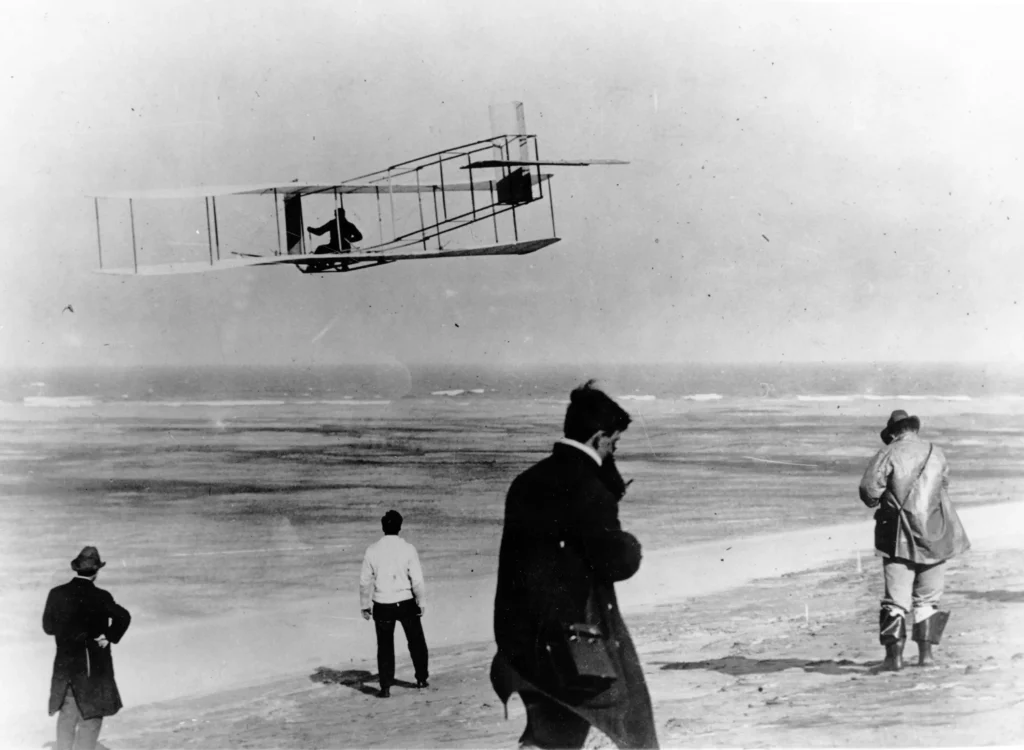Explore how revolutionary ideas are born through history’s transformative concepts. Learn how skepticism and persistence led to innovations such as the airplane, personal computers, and the internet.
Table of Contents
How Revolutionary Ideas Are Born: Taking the Leap from Skepticism to World-Changing Realities
History is full of ideas that, at first glance, seemed unbelievable and even absurd. Yet it was precisely these ideas that later changed the course of the world. Such a path from voiced skepticism and ridicule on the part of society to its eventual adoption globally is very interesting in and of itself, but it also teaches one a very good lesson: the beginning often of how revolutionary ideas are born is doubt and resistance.
So, what do we learn from history? How do we pick up on those things in their formative stages or when they’re still quite crude? To analyze a history of transformational ideas is to seek out which patterns can signal or make birth an actual thing.
The Wright Brothers: “Flying Machines”
In the early 1900s, humans flying, of course, was a fantasy, not something to be seriously considered. Birds flew; man was grounded. Many dismiss the attempts by the Wright brothers, Orville and Wilbur, when he first started experimenting with his flying machines as a complete fad, because nobody knew that powered, controlled flight was impossible.
Even the Wright brothers, who are considered one of the pioneers in flight, didn’t get confidence in themselves. Early prototypes of their designs looked very awkward and crashed during test flights. They even doubted whether their theory was practical at some point. Still, they continued. It was December 1903 when their plane, the Flyer, flew only for 12 seconds and covered only 120 feet but was enough to prove that human flight was possible. What once started as a dreamed-up idea that no one would have suspected changed the world forever.

How Revolutionary Ideas Are Born: The Personal Computer and the Revolution
The 1970s were the time when computers represented huge machines kept either in corporate offices or in government labs. It was a thought beyond imagination that the average people would ever have a personal computer. “Why would even the average man have a computer?”
Steve Jobs, saw what other people did not: the future was personal computing. However, when Apple presented its first computers and Microsoft launched its software, most people weren’t interested. The idea of a “home computer” appeared to be unnecessary, even laughable. Truly, there were not many early adopters.
How could one envision life without personal computers today? Back in the day, this concept seemed to be a niche or even a benevolent failure. Jobs and Gates cannot say for certain that the world would catch fire with their idea, but they did envision what most did not, proving where there is will, there is indeed a way.

How Revolutionary Ideas Are Born: Einstein and Relativity
Great concepts do not get a warm welcome, either in science. In the early 1900s, Albert Einstein formulated a theory of relativity that opposed centuries-old Newtonian physics. His thoughts on curvature and time, even that of space, were incomprehensible to most scientists. You will be surprised to know that you can count the number of scientists who truly grasped this concept on fingers. They took delight in tearing him down. What was the use of this prodigy, this bright young fellow, proposing an entirely new version of the universe?
Even Einstein was unsure. It was a tough task, and the implications of his theories were so vast that they reached even him. However, he started gaining momentum. The clincher came when one of his prophecies was confirmed at the 1919 eclipse. So, by the time that the world unearthed the genius, Einstein had already altered the face of physics for us.

How Revolutionary Ideas Are Born: The Germ Theory of Disease
In the 19th century, few thought that tiny organisms would be known to cause disease. At that time, the medical profession was generally attributing illness to miasma or “bad air.” When Louis Pasteur and Robert Koch suggested the germ theory of disease, they were met by fierce resistance from the established medical profession. Most people dismissed their claims as absurd.
However, through hard-core experiments and subsequent discoveries, they declared that microbes were the agent of infections. Hence, it was a fundamentally influential concept that had its foundation on the principles raised by a revolution in medicine. It laid down the mainstays of hygiene measures, vaccines, and antibiotics. Primarily associated with is how revolutionary ideas spring from being ready to question widely-held values and battle for evidence-based knowledge.

How Revolutionary Ideas Are Born: The Internet
Many people could not even fathom how billions of interconnected computers were going to help anyone. Early advocates such as Tim Berners-Lee and Vint Cerf were generally skeptical regarding what the internet was good for. People did not really understand why they wanted to stretch their computers to distant corners.
But as they went on, they began to demonstrate the promise. What began as a minor facility for academics became a revolutionary medium in the way we communicate, share information, and even do business. Today, it’s difficult to envision life without the internet, and this only goes to show that innovative ideas throughout history, as a rule, break off with skepticism.

Knowing New Ideas Today: It Takes the Spark of Discomfort
What’s now clear in history is that revolutionary ideas don’t exactly come this way. They begin with one voice of doubt or another opposing them, sometimes even from their creators. If we want to identify innovative ideas today, we need to look for that same feeling of discomfort. The Wright brothers were uncertain. Jobs was not sure if the world was ready for personal computers. Einstein had to wait for confirmation. They didn’t have complete confidence in their own ideas, but they pursued them anyway.
How do we find these emerging ideas in our own time? Look to reasonable experts who are proposing something that seems wrong or counterintuitive. In our own time, those “crazy” ideas may include fields of study that include things like quantum computing, artificial intelligence, or even space colonization. Many would dismiss these today as “crazy” ideas, yet they already thrive with all sorts of possibilities for future revolutions.
Conclusion: Embracing the Unknown
In the history of big ideas, embracing uncertainty is the price one pays if you want to create or recognize something revolutionary. Rarely do new ideas feel obvious when they are first born. Instead, they reside in the minds of people who dare question the status quo. It was even little more than half-convinced by people proposing these ideas to others.
The next time an expert tells you something that sounds improbable, take a second look. The world just might need it. Understanding how new ideas and how revolutionary ideas are born opens our eyes to the possibilities of the extra special.
Hope you learned something from topic “How Revolutionary Ideas Are Born.”




